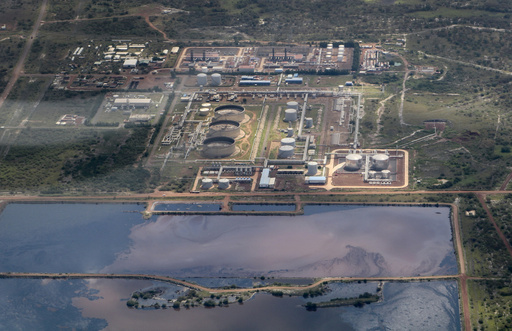In South Sudan, a recent rupture in a vital oil pipeline has exacerbated the country’s already struggling economy, with some security forces going unpaid for nine months. The economy heavily relies on oil exports through neighboring Sudan, but ongoing conflict in Sudan has led to chaos, and the pipeline in a conflict zone broke in February. This collapse in oil revenues has worsened South Sudan’s ongoing issue of mismanagement.
The capital, Juba, is witnessing protests over delayed wages, with many soldiers and civil servants turning to side jobs or quitting their positions. A school deputy head teacher in Juba, Maburuk Kuyu Surur, mentioned that in his 36 years of teaching, he has never experienced such payment delays, even before South Sudan gained independence in 2011. Due to the crisis, teachers have resorted to collecting funds from students’ families to make ends meet, despite education being free.
President Salva Kiir’s government, facing economic challenges, has seen six finance ministers since 2020, with the latest being dismissed in July. Even as a portion of the oil continues to be exported through a different pipeline, President Kiir has expressed frustration over mismanagement, emphasizing the need to generate revenue from sources like taxes, as government accounts are not receiving the funds to cover salaries.
The situation has led to a surge in inflation, with prices skyrocketing, making it difficult for people to afford basic necessities. The local currency has also sharply declined against the US dollar, both in the black market and official exchange rates. While external support is ongoing, including a recent $46.2 million agreement with the African Development Bank to boost agricultural production, partners who once supported South Sudan’s independence are growing frustrated.
The country is striving to diversify its revenue sources by tapping into tourism and agricultural sectors. However, widespread displacement, poverty, and delays in essential services like payment of salaries pose significant challenges. Many individuals, including diplomats, university lecturers, and security forces, have been enduring financial hardships, with some resorting to alternative means of income generation, such as charcoal trading. Despite ongoing efforts, South Sudan remains engulfed in economic turmoil, affecting its citizens’ livelihoods and sparking concerns about the country’s stability and development prospects.



